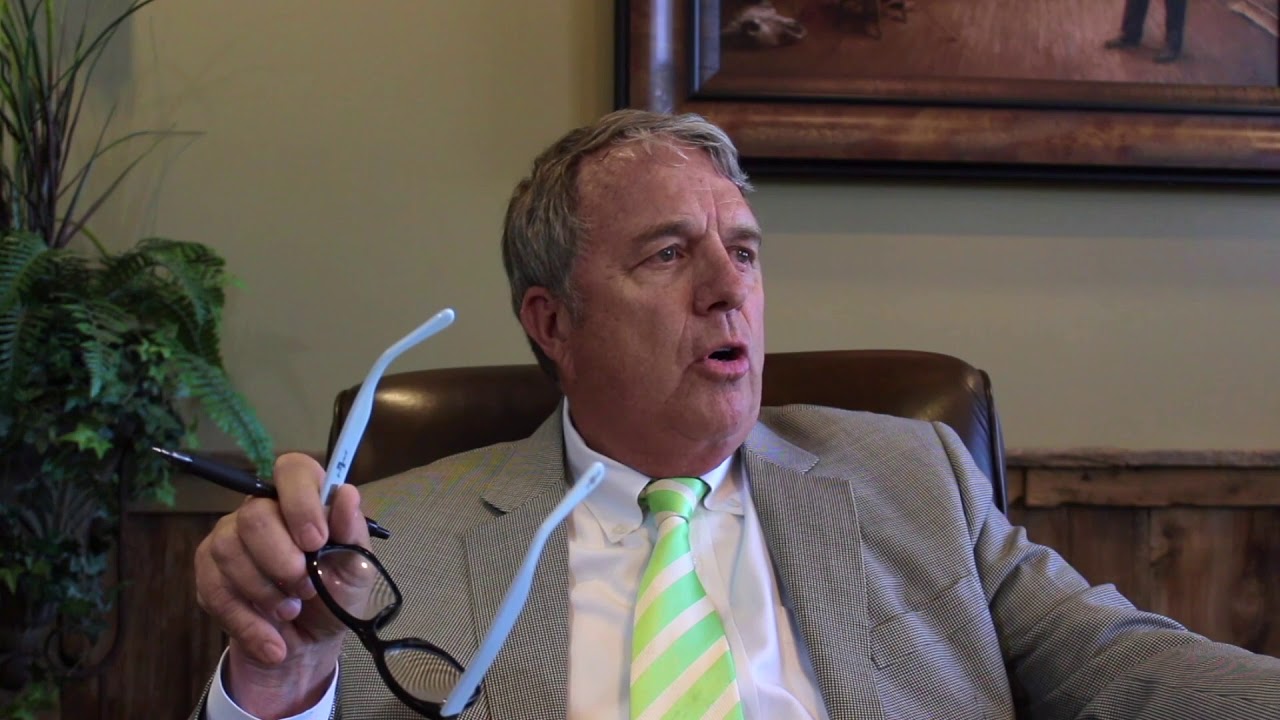What is Estate Planning?
The mention of “writing a will” or “working through an estate plan” can make many people feel overwhelmed. However, estate planning is really just a set of tools that will help you minimize your tax liability and ensure that your assets go to whom you’d like, at the time you designate, and under circumstances that you can arrange. A proper estate plan protects your family from unnecessary work and potential disputes by taking care of things now so that you are prepared for any unexpected events.
[no_toc]Estate planning is a plan put in place while you are living and directing how you want your estate handled upon your death. It can be as narrow or broad as you like and as strict or flexible as you desire.You begin by appointing a Trustee or Trustee, who, in certain circumstances, may be you. If you are the Trustee of your own trust, the trust is called a “grantor trust” or a “self-settled trust.” Extreme care must be taken to locate the grantor’s trust in a favorable state. For example, Texas affords very limited protection to the assets in a grantor trust. However, draw a Nevada grantor trust, wait two years, and then Nevada affords most grantor trusts the full protection of Nevada state law.
When I say “protection,” I’m talking about the protection of the trust’s assets from divorce, creditors, lawsuits, spendthrift children, and others who may make claims against you. Often times this is called an “Asset Protection Trust.” It may eliminate the need for probate and may protect your heirs from paying estate taxes at the time of your death. Such a trust can have a “dynastic” component that allows the life of the trust to be longer than that typically available under Texas law.
What Happens if a Spouse Dies Before Divorce is Final?
So, Can you Divorce a Dead Person? If a spouse dies before the divorce is finalized in Texas, the divorce proceeding generally comes to an end because a divorce is…
Do you Need a Lawyer to Revoke Power of Attorney?
Navigating Power of Attorney: Do You Need a Lawyer to Revoke It? Power of Attorney is a legal document that grants an individual the authority to act on behalf of…
My Husband Died and I am not on his Bank Account
Deceased Spouse’s Bank Account: Who Inherits the Funds? Losing a spouse is an incredibly difficult and emotional experience, and amidst the grieving process, there are numerous practical and legal matters…
Trustee vs. Trustor – Understanding Trust Roles
Roles of Trustors and Trustees in Trusts Trusts are an important legal arrangement that can help you protect your assets and ensure your loved ones are taken care of after…
What Does Estate Planning Cost?
Cost of Estate Planning One of the primary reasons people put off estate planning is concern over the cost. Creating a will, trust, and other estate planning documents will cost…
How to Set Up an Estate Account
Estate Accounts Guide As an executor of an estate, one of the initial steps you should take is to open an estate bank account in the name of the deceased…
Asset Protection for Physicians and Professionals
Asset protection for physicians is simply estate planning with the goal of preserving personal wealth from professional liability. This is particularly important for asset protection for physicians and other business…
How to Name a Trust
Wondering what you should name your living trust? A friend asked me just this week: “If I create a revocable living trust for all my assets, what do I call…
Guardianship Provisions under Florida Law
Florida Guardianship Law Florida Statutes, Chapter 744 contains all the provisions under Florida law for the guardianship of a ward. A ‘ward’ is the person to whom a guardian has…
Common Questions Regarding a Florida Living Trust
What is a Living Trust? Think of a Living Trust as a bucket on paper. A trust is an agreement between the Trustee and the Trustmaker (also called a Settlor…
Why might you be given Power of Attorney?
Power of Attorney If you have been named “power of attorney” (POA) by a family member or friend this means that you are an “agent” or “attorney-in-fact” and have the…
What is a Living Trust?
A living trust, as defined by West’s Encyclopedia of American Law, Edition 2, is “a property right, held by one party for the benefit of another, that becomes effective during…
Estate Planning: Choosing Per Stirpes or Per Capita Distributions
Per Stirpes vs. Per Capita Distributions While Latin may be a dead language, it remains relevant to estate planning lawyers and their clients when choosing how to prepare for the…
Is a Testamentary Bypass Trust Right for Me?
Testamentary Bypass Trusts Whether you are a business owner reflecting on your succession planning needs, or an individual who has amassed significant assets from sources other than a business, if…
What is a Trustee?
A trustee is the designated manager of a trust, and in this capacity, holds title to all the assets of the trust. These assets may include real estate, a portfolio…
Do I Need a Will or a Trust?
Trusts and wills accomplish the same goal in a different time frame. Wills transfer ownership of property and finances to beneficiaries when the owner dies. Trusts transfer ownership of property…
Transferring Encumbered Property to a Land Trust
Land Trust Transferring a personally owned investment property to a land trust in order to provide additional legal protection for your holdings is a relatively straight-forward but highly technical process….
What Is Probate?
Probate is the legal process used to determine the disposition of a person’s assets upon his or her death. in many states, the Probate Code is not overly complex, and…
What is Durable Power of Attorney?
Durable Power of Attorney Many estate planning clients have heard about a Financial Power of Attorney but are not clear as to why they should have one or how they…
Death Tax: What State Should You Die In?
Not all states are created equal. Arizona may have beautiful winters but the summers can leave something to be desired. Ever spend winter in upstate New York? A winter there…
Duties of a Fiduciary in Estate Planning
Responsibilities of a Fiduciary under Common Estate Planning Documents A Personal Representative has the responsibility to distribute the tangible personal property (furniture etc.) to beneficiaries after someone passes away. Additionally,…
Effect of Divorce on Estate Plan
Why do people get married these days? The common reasons are love, money, religion, or some combination thereof. Divorce, on the other hand, often occurs in the later stages of…
Protect Your Aged Loved Ones from Financial Elder Abuse
The aging process affects all of us differently. After working for decades toward the goal of a comfortable retirement, retirees hope that their physical and mental condition permits them to…
Dynasty Trusts
A “Dynasty” trust contains provisions for substitute trustees each time one dies or ceases to serve. It also passes your assets virtually tax-free from one generation to the next generation as you direct. A properly drawn dynasty trust will be located in a state with a long rule against perpetuities, such as Nevada. You don’t have to live in Nevada to have a grantor trust or dynasty trust located there. You stay right where you are, and the paperwork is handled by your estate planning attorney who makes sure you qualify under Nevada’s trust laws and other laws.
When a properly drawn Nevada Asset Protection Trust with dynastic properties is drawn and your assets transferred to it, subject to certain IRS maximums (Federal Estate Taxes are imposed upon estates in excess of $2 million in 2006-2008) you will have a practically untouchable trust after two years. The trust can remain in existence for up to 365 years if the laws of Nevada are followed.
During this time “in trust,” your assets are just as they were before going into the trust. The only difference is that they are owned by the trust – not by you. You have full control, use, and enjoyment of the trust assets if you follow the rules. Income taxes must be paid by you if you are the Grantor on profits made by the trust, and there are some ongoing maintenance fees to trustees, banks, attorneys, and accountants. But if the numbers are large enough, these are almost inconsequential.
We prepare trusts like those described above, as well as many other types of trusts, wills, family limited partnerships, handle probate, and more at my law office.
Always consult a competent attorney or tax professional, as the case may be, before taking any action in reliance on this post.
Estate Planning Lawyers
An estate planning attorney needs to understand not just all aspects of personal finance, but also family dynamics. Probate, estate taxes and trusts are part of estate planning law, and an estate planning lawyer needs to understand them all.

What is an Estate Planning Attorney?
Estate planning lawyers deal with the creation, protection, and disposition of their client’s assets throughout life up until death. Estate planning attorneys can also help plan what will happen with your home, investments, business, life insurance, and employee benefits such as a 401k, trust, and other property if you were to become disabled or if you were to die. A good estate planning attorney can help you plan and carry out all of your wishes if you are unable to do so yourself.
Facts About Estate Planning Law
Estate planning lawyers handle the legal bureaucracy involving estate planning laws. Estate planning lawyers help formulate legal agreements that explain what to do with an individual’s estate rights. An estate planning attorney should be hired if a person is involved in a legal battle over an estate. Estate planning lawyers should probably be consulted for all legal estate planning advice.
Aren’t Wills only for the Ultra Rich?
A will is the framework of your estate plan; it can be very complex or very simple. Phrases like “the reading of the will” or “he’s been taken out of the will” conjure imagery of billionaire families from television programs and movies. The fact is, just about everyone should have a will; many people will only require a very basic will, but for instance, if you have children, and would like to make a plan for who would be responsible in the event that you passed away or could no longer take care of them, that is something that a will can do. If you have a vacation home or piece of property that you’d like to keep in the family, you can designate that in your will and then set up a trust to ensure that the taxes, maintenance, or other costs are taken care of.
Ultimately, a will is a set of instructions that should be followed when you are unable to make your wishes known. Some of the instructions that are included in your will may include:
- Designating key family members or loved ones as the people in charge of your finances or health care decisions.
- Designating guardianship (who will take care of them) for any minor children
- Designating how your heirs will receive funds (for example, when they reach a certain age, or after they’ve graduated college, etc)
- Designating who will receive your personal and any real property you own.
A will also help you prepare for unforeseen issues or help make arrangements to handle matters that you may not want to leave to your children or the courts to settle like:
- Preparing for any physical or mental incapacity during your lifetime
- Avoiding a complex Probate process
- Minimizing estate taxes
What is Probate? What are Letters of Testamentary?
Probate is the legal process that takes place after someone dies. The process aims to resolve any claims anyone may have against the deceased person and distribute their property as directed in the will. The probate process produces “letters of testamentary”. Letters of testamentary and a valid death certificate are both required for the executor of the estate to access bank accounts and control other assets of the deceased.




















Estate planning is a crucial aspect of financial planning that often gets overlooked. It involves making arrangements for the distribution of one’s assets and wealth after their death, ensuring that their wishes are carried out and their loved ones are taken care of.
I recently had a personal experience with estate planning when my grandmother passed away unexpectedly. She had always been a meticulous planner and had taken the time to create a comprehensive estate plan. This included a will, a trust, and power of attorney documents.
Because of her careful planning, the process of settling her estate was relatively smooth and stress-free for our family. Her will clearly outlined how her assets were to be distributed among her children and grandchildren, avoiding any potential conflicts or disputes. The trust she had set up ensured that her assets were protected and managed properly, providing financial security for her beneficiaries.
Additionally, my grandmother had appointed a power of attorney who was responsible for making decisions on her behalf when she was no longer able to do so. This individual played a crucial